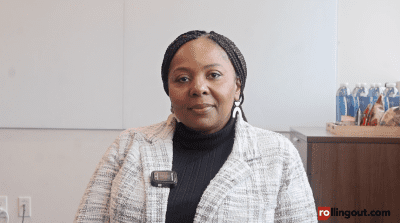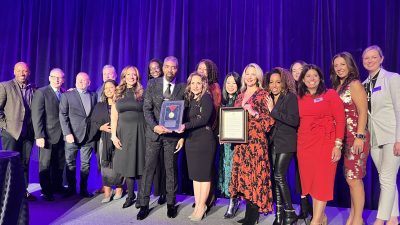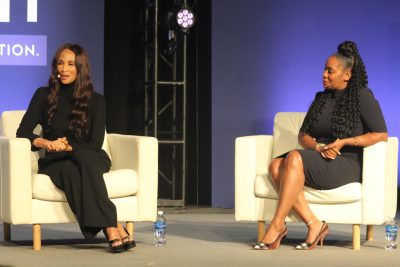 Lisa Richardson has had a busy few years. While in the home stretch of completing her doctoral studies, she fulfilled her dream of opening her own training center. Her timing couldn’t be better with America reinventing itself and all. Richardson’s training center is deluged with requests for training from both private and public entities. Rolling out talked with her about the new venture and how it feels to be known as “Dr. Richardson.”
Lisa Richardson has had a busy few years. While in the home stretch of completing her doctoral studies, she fulfilled her dream of opening her own training center. Her timing couldn’t be better with America reinventing itself and all. Richardson’s training center is deluged with requests for training from both private and public entities. Rolling out talked with her about the new venture and how it feels to be known as “Dr. Richardson.”
Why did you pursue an advanced degree and how will it aid you?
My field is education, so advanced degrees are par for the course. However, I decided to pursue a Ph.D. for my own benefit. My life revolves around a love of learning, and I always intended to complete my study through the doctorate. Many doors open more swiftly for Dr. Lisa Richardson than did for Ms. Lisa Richardson. Education is the currency of advancement in this country.
The doctorate represents deep study, independent thinking, and intrinsic motivation — all of which are essential for starting and running a business. While certainly not required, graduate study is a great proving ground for being an entrepreneur. In fact, I wish that more graduate programs emphasized and encouraged the entrepreneurial spirit in their students. In my case, my graduate assistantship included faculty development, and helped me decide to start my business, Academic & Technology Solutions LLC. I could have made the decision without going to graduate school, but the experience was invaluable to my future and that of my business.
How important is it to create and/or maintain a career/family balance?
As important as the work/life balance appears to be, it’s a myth. It doesn’t exist, and pursuing it wastes precious time. What works for me is taking life one day at a time, and scheduling carefully. I’ve finally gotten to the point that when I’m at home, I’m not working. This has been working out very well, although sometimes an email or call can’t wait until I’m back in the office.
Some weeks will require that I’m in the office later than I want to be, but I compensate with going home early and treating my boys when I can. They know that they can call me any time, and my clients know that I will take their calls. They also come and visit me in the office some days. That’s what a family-friendly business model means to me, and it’s far more important than “balance.”
If your company offers flexible scheduling, has it helped retain more women?
We offer flexible scheduling precisely to retain and attract women employees. As the owner and a single mother, it was particularly important to me to integrate this feature into our business model.
What is your daily media diet? What news sites do you visit most often, and why?
I actually have my news curated for me. Based on the diverse groups of people I follow via Twitter, Google+, and Facebook, the news is streamed directly to me daily. By the time I get home to watch the evening news, I’ve already seen and processed it.
Some maintain that it takes certain characteristics to be an effective leader. In your opinion, what are those characteristics? Exactly, what does it take?
The greatest characteristic of a leader is a desire to serve. It is also usually the most overlooked characteristic. Charisma, a great public image, and likability all fall short of a deep-seated and heartfelt desire to serve people, a cause, an organization.
Has mentorship played a significant role in your organization?
Peer mentorship plays a large role in running my organization, even though my peer mentors are in different industries. We help keep each other up-to-date on business news and trends, as well as dealing with individual challenges. While I don’t have a full-time staff, I do encourage my contracted instructors to connect with me and one another to form stronger peer learning networks.
Do you have a mentor or advisory board? If so, how long have you had this guidance?
I have an informal network of peers — other women entrepreneurs — and we mentor each other. We’ve been working together and supporting each other for a little over a year. My business does have an advisory board that consists of family members from a diverse variety of professions.
How do you determine if an employee will be a return on your investment?
In the initial interview, I’m looking for signs that the candidate thinks creatively, works hard, and has a problem-solving mind-set. In fact, the more entrepreneurial the candidate appears to be, the more likely I am to hire them. Skills can be taught, motivation can be encouraged, but a personal drive to succeed is intrinsic and what I value most in an employee.
















